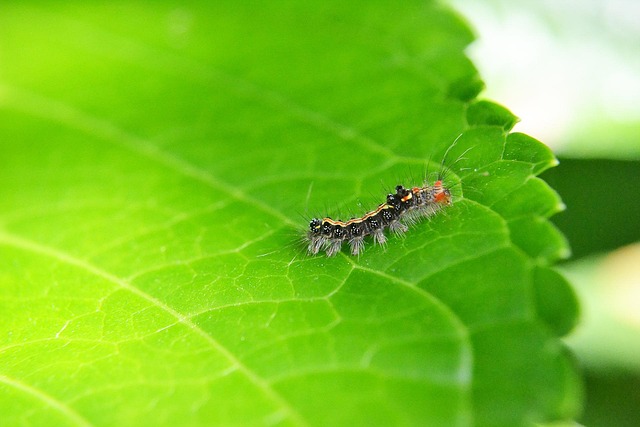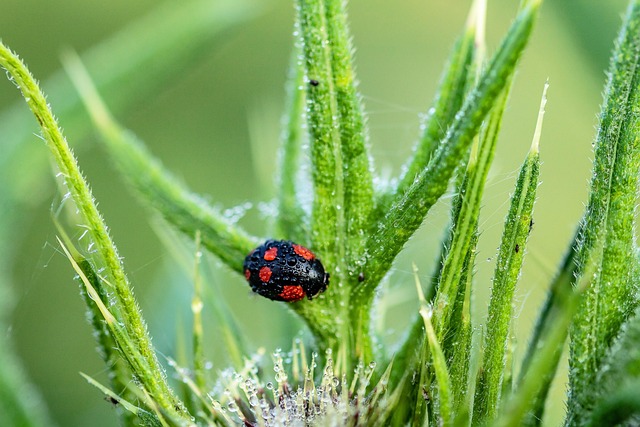A persistent musty odor in your Wheat Ridge basement often indicates a pest invasion, requiring integrated pest management (IPM) strategies for effective long-term prevention. Start by locating and addressing the root cause—moisture, mold, or pests—then use tailored non-chemical methods and safe pesticides recommended by professionals to eliminate them, ensuring a sustainable and environmentally friendly solution.
Discovering the source of a musty smell in your Wheat Ridge basement could be an early warning sign of a pest problem. Integrated Pest Management (IPM) offers a holistic solution, addressing the root cause rather than just symptoms. This article guides you through identifying hidden pests behind that unpleasant odour and presents effective IPM strategies tailored for treating Wheat Ridge basements. Learn how to locate, prevent, and control infestations naturally, ensuring a safe and pest-free environment.
- Identifying Musty Smells: Uncovering Hidden Pests
- Integrated Pest Management: A Holistic Approach to Control
- Effective Strategies for Wheat Ridge Basement Treatment
Identifying Musty Smells: Uncovering Hidden Pests

If you’ve noticed a persistent, musty smell in your Wheat Ridge basement, it could be an early indicator of a pest invasion. Many pests, including common houseflies and certain types of insects like carpet beetles, emit this distinct odor as they feed on organic materials stored or hidden within your home’s structure. To effectively address the issue, you must first pinpoint the source of the smell. Check for any signs of damage, such as holes in walls or floors, which could reveal entry points for pests. Pay close attention to dark, damp areas where items like stored boxes, furniture, or even insulation might be harboring these unseen intruders.
Pest control experts recommend a thorough inspection during this process. Look for webs, egg sacs, or adult insects themselves. A musty smell combined with physical evidence of pests is a clear signal that integrated pest management (IPM) strategies should be employed. IPM involves a multi-faceted approach to pest control that considers the source, behavior, and biology of the pests involved, aiming for long-term prevention and minimal use of chemicals.
Integrated Pest Management: A Holistic Approach to Control

Integrated Pest Management (IPM) offers a holistic approach to controlling pests, moving beyond traditional methods that often rely heavily on chemical pesticides. This strategy focuses on identifying and addressing the root causes of pest infestations, promoting sustainable and environmentally friendly solutions. By understanding the complex interactions within an ecosystem, IPM aims to minimize the reliance on chemicals while effectively managing pests.
When dealing with issues like a musty smell in your Wheat Ridge basement, a holistic approach becomes crucial. Instead of merely masking odors with air fresheners, IPM involves meticulous inspection and finding the source—be it moisture, mold growth, or specific pests. This method ensures that any solution is tailored to the problem, providing long-lasting relief without causing potential harm to human health or the environment.
Effective Strategies for Wheat Ridge Basement Treatment

If you’re dealing with a musty smell in your Wheat Ridge basement, it could be an indication of a pest problem. Effective wheat ridge basement treatment starts with finding the source. The first step is to inspect the area thoroughly for any signs of pests like ants, rodents, or termites. These insects often enter through small cracks and gaps, so look along foundations, around windows, and in dark corners. Once identified, understanding their entry points is key. Sealing these areas with caulk or other appropriate materials prevents further infestation.
Next, consider a combination of non-chemical and chemical treatments. Non-chemical methods include regular cleaning and ventilation to eliminate moisture and food sources that attract pests. For more severe cases, professional pest control services in Wheat Ridge may employ targeted chemical applications, ensuring safety and effectiveness. This could involve setting up traps or applying safe, environmentally friendly pesticides precisely where needed. Regular maintenance and monitoring are crucial for long-term success in wheat ridge basement treatment.
When it comes to addressing a musty smell in your Wheat Ridge basement, identifying the root cause is key. Integrated Pest Management (IPM) offers a comprehensive solution by targeting not just visible pests but also their hidden sources. By understanding and implementing effective IPM strategies, such as those detailed for wheat ridge basement treatment, you can effectively control and eliminate pest problems while minimizing environmental impact. Remember, proper pest control begins with pinpointing the source, so take action to find and fix the problem before it becomes a bigger issue.
